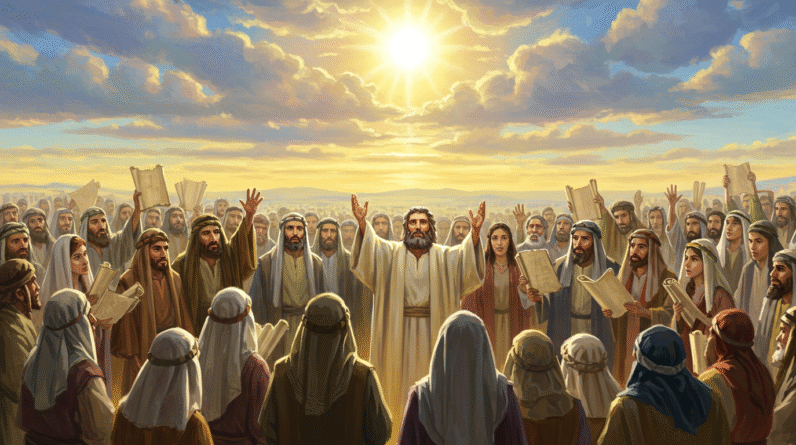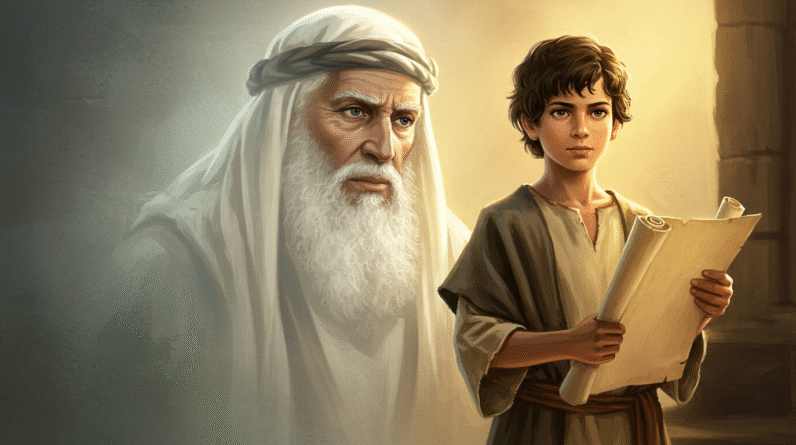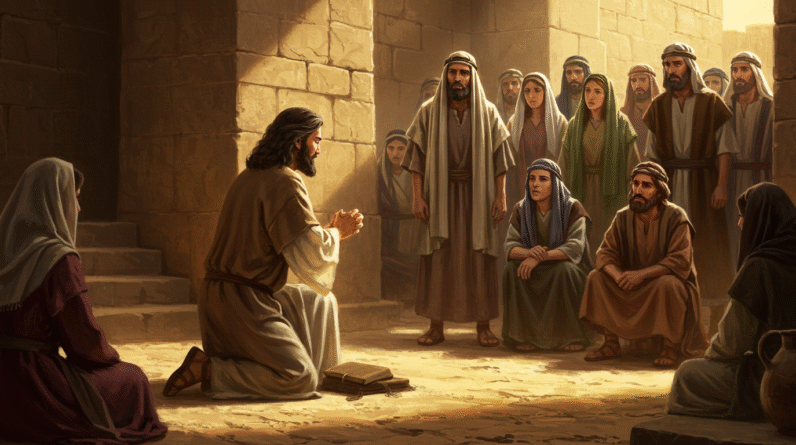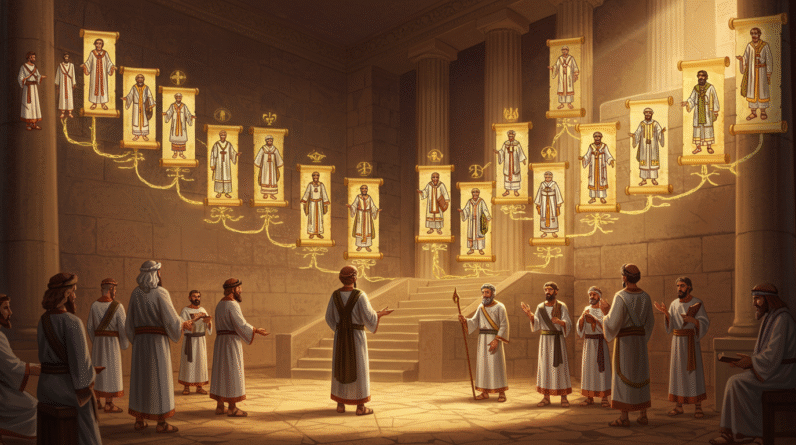Eli The High Priest: A Man Of God Who Struggled With Accountability
In the annals of biblical history, Eli the high priest stands as a complex figure—a devoted servant of God yet a flawed man who grappled with accountability. His narrative offers a profound exploration into how intentions alone often fall short when not matched by actions. Let’s delve into the life of Eli the high priest, exploring his achievements, his shortcomings, and the resonant lessons on responsibility that his story imparts.
Understanding Eli’s Position and Responsibilities
When you think of a high priest in ancient Israel, it’s a role imbued with immense responsibility and sacred duty. Eli, who presided at the sanctuary of Shiloh, was entrusted not only with the spiritual well-being of the nation but also with the task of guiding them in adherence to God’s laws. As high priest, Eli was the spiritual leader, a licensed mediator between God and His people, responsible for sacrifices, teaching, and ensuring that the community abided by divine commands.
Yet, even with such significant stature, Eli’s life reminds us that leadership is intricate. You might envision Eli fulfilling his religious duties with all the gravity they deserved, but this wasn’t merely about ritual adherence. It was also about teaching and influencing the conduct of those under his care, maintaining both ceremonial order and moral integrity.
Eli’s Devotion and Commitment to God
Throughout the biblical narratives, Eli’s devotion to God is undeniable. The Bible presents him engaging in the worship of God earnestly, serving diligently for many years. Can you imagine the dedication it takes to serve in such a high-stakes environment, day in and day out? Eli was consistently engaged in facilitating the worship of God, offering sacrifices, and leading prayers, a testimony to his unwavering faith and commitment.
His devotion marks him as a man whose heart was aligned with divine service. Yet, as often can happen even in our own lives, deep devotion did not immunize him from making significant missteps. It’s a stark reminder that even the most well-intentioned individuals are prone to human frailties and misjudgments.
The Tragic Misstep: Eli’s Parenting
One of the most known aspects of Eli’s story is his relationship with his sons, Hophni and Phinehas. These young men, who also served as priests, brought disgrace to the family name and their position. The Bible describes them as corrupt, engaging in exploitative practices and showing blatant disregard for the sacred priestly role. They misused their office for personal gain, a grievous offense that was both destructive and irreverent.
Perhaps this is where Eli’s greatest struggle with accountability surfaces. Despite receiving reports of his sons’ misdeeds, Eli’s response was tepid. He reproached them without abandoning them from their roles or enforcing meaningful consequences. It’s a sobering reflection on the challenges of addressing failure, especially when it comes from within one’s own family.
Eli’s Weakness in Leadership
In leadership, there’s often a delicate balance between compassion and assertiveness. Eli’s tendency to lead with a gentle approach became a downfall when dealing with his sons’ misconduct. His reluctance to act decisively against Hophni and Phinehas emphasizes a vulnerability in his leadership style—a hesitation to pursue necessary corrective measures.
Leaders today can take a page from Eli’s narrative, realizing that accountability often requires firmness, even when it’s uncomfortable. It’s delicate, isn’t it? Balancing empathy with the imperative need for justice. Eli’s story gleams with lessons about the consequences of neglected accountability—a very human perspective that makes the ancient tale resonate even in contemporary scenarios.
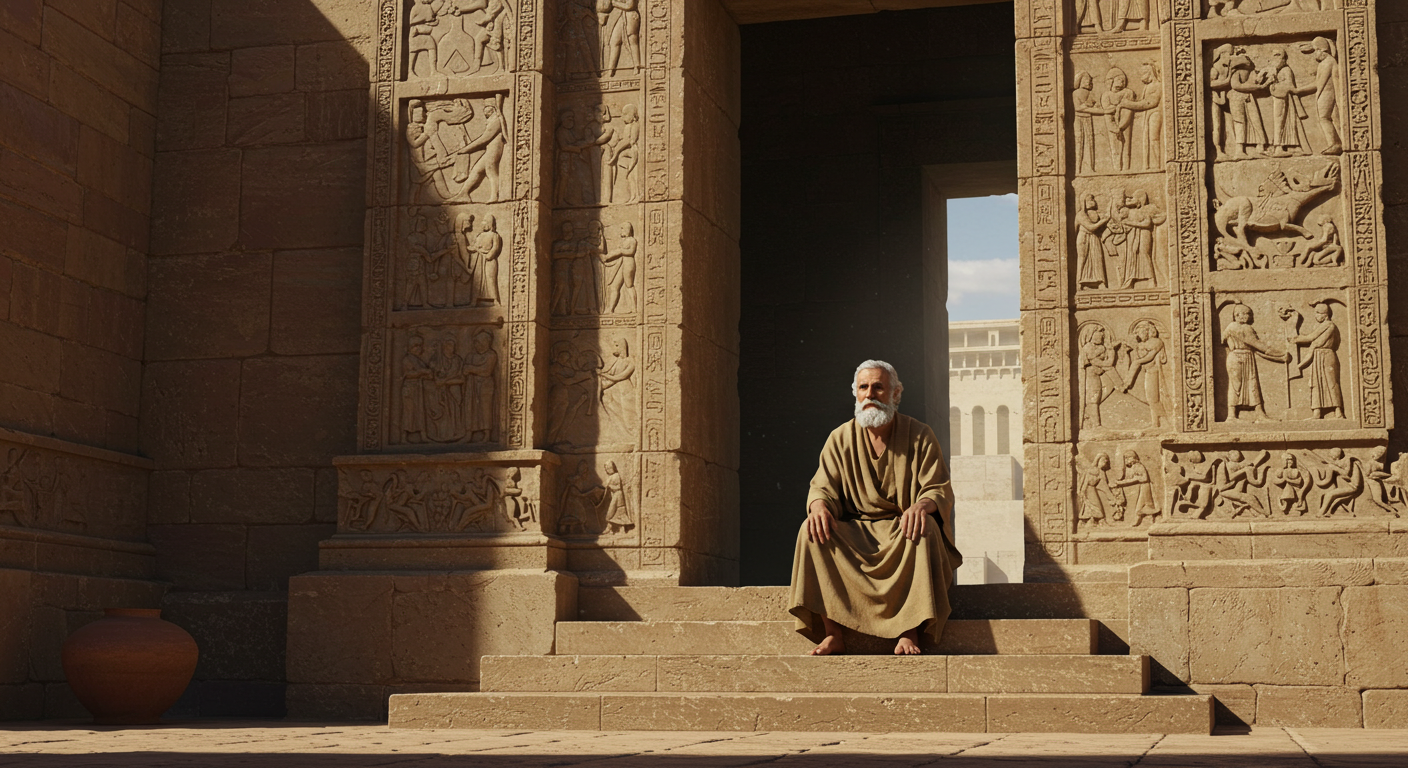
The Message of Judgment and Prophecy
Eli’s story also carries with it the weight of divine prophecy and inevitable judgment. When you read about God’s message delivered through a man of God, you realize that God’s patience has its limits. Eli was warned not once but twice—first by an unnamed man of God and later by the prophet Samuel. Both prophecies foreshadowed dire consequences for Eli’s house due to the continued misconduct of his sons and his failure to rein them in.
These prophetic judgments highlight a critical theme: the divine expectation of accountability. You might say that God’s patience and mercy do not nullify His justice. Eli’s fate was sealed by his pattern of allowing wrongful actions to persist without meaningful intervention. It’s a cautionary tale that reminds modern readers of the non-negotiable relationship between justice and leadership.
Eli’s Encounter with Samuel
One luminous moment in Eli’s story is his interaction with the young Samuel. Groomed from childhood at Shiloh, Samuel was under Eli’s tutelage. When God called Samuel, the young boy didn’t initially realize it was a divine voice. Eli’s guidance at this crucial moment is admirable. Recognizing God’s call, Eli instructed Samuel on how to respond, thereby facilitating Samuel’s first prophetic encounter.
This offers a glimpse into the depth of Eli’s faith. Despite his struggles with his own family, Eli’s ability to guide Samuel demonstrates his commitment to fostering a new lineage of faithful service. It’s a testament to the idea that even amidst personal failings, there is room for redemption in guiding others toward their divine purpose.
The Tragic Outcome
The conclusion of Eli’s story is somber, a heart-wrenching portrait of the cost of inaction. When news arrived that the Israelites had been defeated, the Ark of the Covenant captured, and his sons killed, it was a turning point. Eli’s death upon hearing the news stands as a poignant end to his long service—an end marked not solely by personal tragedy but by the culmination of his life’s struggles with accountability.
His demise proclaims the severity of disregarding accountability, illustrating that a legacy built on inaction and familial negligence bears painful consequences. It’s a sad yet profound reminder that responsibilities cannot be shirked indefinitely, as the repercussions eventually catch up.
Learning from Eli’s Story
Reflecting on Eli the high priest gives you a window into the human experience. Leadership, you see, isn’t devoid of complexity; rather, it’s colored by our actions and decisions. Herein lies significant insight: Devotion and faithfulness must be complemented by decisive, just action.
Eli’s narrative is, in many ways, a mirror—it challenges you to assess how you handle accountability in your own life. Consider the areas where compliance and sternness must share the task of steering your actions. It’s about understanding that faith intertwines with justice, both necessary components in living out a divinely aligned life.
Embracing Responsibility
As you ponder Eli’s journey, the power of responsibility becomes clear—acting not just with good intentions but with tangible, sometimes difficult decisions. Leaders and followers alike are called to uphold an ethical standard that ensures well-being and harmony. In your life, consider where these lessons might apply. Responsibility, after all, isn’t a burden but a commitment to justice and authenticity in your personal and collective spaces.
Conclusion: A Call to Action
So, as you think about Eli the high priest and his story, let it be a reflective pause in your life. In learning from his shortcomings, you gain clarity on the importance of accountability. While his journey shows the pitfalls of inaction, it also offers hope in the chance to guide others rightly and justly, a testament to the enduring power of faith.
Explore More
For further reading and encouragement, check out these posts:
👉 7 Bible Verses About Faith in Hard Times
👉 Job’s Faith: What We Can Learn From His Trials
👉 How To Trust God When Everything Falls Apart
👉 Why God Allows Suffering – A Biblical Perspective
👉 Faith Over Fear: How To Stand Strong In Uncertain Seasons
👉 How To Encourage Someone Struggling With Their Faith
👉 5 Prayers for Strength When You’re Feeling Weak

📘 Jesus and the Woman Caught in Adultery – Grace and Mercy Over Judgement
A powerful retelling of John 8:1-11. This book brings to life the depth of forgiveness, mercy, and God’s unwavering love.
👉 Check it now on Amazon
As a ClickBank Affiliate, I earn from qualifying purchases.
Acknowledgment: All Bible verses referenced in this article were accessed via Bible Gateway (or Bible Hub).
“Want to explore more? Check out our latest post on Why Jesus? and discover the life-changing truth of the Gospel!”



